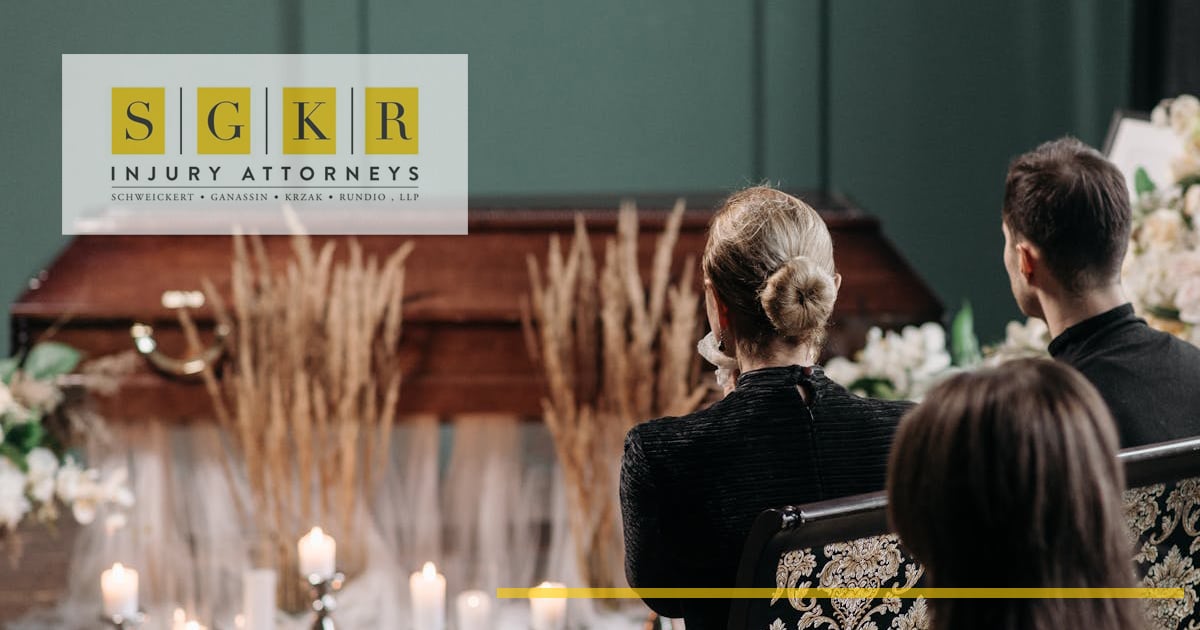What Relatives Can File a Wrongful Death Lawsuit in Illinois?

Each year, countless Illinois residents lose their lives due to the negligence of others, including auto accidents, use of defective products, visiting dangerous premises, and many other ways.
A common question surviving loved ones often have after unfortunate incidents like these occur is, “What relatives can file a wrongful death lawsuit in Illinois?” We’ll provide some additional insight into that below.
Who Death Claims Can Be Brought By in IL
Only the personal representative of a deceased’s estate can bring a wrongful death action in our state.
Family members and others can be appointed as personal representatives in Illinois, provided they:
- Are 18 or older
- Reside in the U.S., and if they don’t live in Illinois, they have a resident agent to handle court filings here personally
- Are of sound mind
- Don’t have certain disabilities
- Haven’t been convicted of certain criminal offenses
If your loved one died intestate (without a will), a judge in the probate division of the county circuit court would appoint a personal representative, also sometimes referred to as an executor, of their estate.
Who Receives the Settlement Secured in Cases Like These?
While they can’t take legal action following a family member’s preventable death, a decedent’s surviving loved ones are eligible to receive compensation secured by a personal representative filing suit.
The order in which loved ones can receive the settlement follows a “next of kin” order, which coincides with that person’s degree of dependence on the decedent for financial support.
Spouses and children take priority status in receiving compensation.
The typical order after that is as follows:
- Grandchildren (if there’s no surviving spouse or children)
- Parents and siblings (if the decedent didn’t have a spouse, children, or grandchildren)
- Other more distant relatives, including siblings or nieces or nephews)
The judge presiding over the case retains some degree of discretion when it comes to dividing up wrongful death case proceeds. Often, the Court will base such division on how much the family member depended upon the deceased.
For example, a spouse who relied on the decedent for help caring for their young children might be entitled to a larger share of an award. The overriding key is that, when dividing an award, the extent of the respective family members’ losses or needs is taken into account.
Liability for Preventable Deaths
The elements that must be established to move forward in filing a wrongful death lawsuit in Illinois include:
- A death occurred
- Another person breached their duty of care, was negligent, or intentionally did something that ultimately resulted in the decedent’s passing
- Not only did the decedent suffer harm, but so too did surviving family members
As far as who can be held liable for the wrongful death, it’s any person or entity who would have also been responsible for paying damages if the death hadn’t occurred. This can be a property owner, physician, motorist, or anyone else who contributed to causing your loved one’s death.
Damages Recoverable in Wrongful Death Cases
The Illinois Wrongful Death Act forms part of the Illinois Compiled Statutes (ILCS) and is codified as 740 ILCS 180/1. This section of state statute allows family members of a wrongfully killed individual to seek compensation for their economic losses, such as:
- Medical bills, such as those associated with an injury or illness that ultimately claimed the decedent’s life
- Lost income (leading up to their death) and lost future earnings
- Benefits (such as health insurance or a pension)
- The cost associated with household services the decedent provided
- Funeral and burial expenses
- Loss of inheritance, which refers to how much the surviving family members would have inherited from the deceased
Non-economic damages, such as ones for:
- Grief or mental anguish
- Loss of companionship
- Loss of moral training or instruction, which refers to a minor child’s loss of guidance from their now-deceased parent
Should a wrongful death occur, but no claim pursuant to the Family Expenses Statute, codified as 750 ILCS 65/15 is filed, the administrator of the decedent’s estate can bring a separate action requesting funeral or burial expenses, per section 34.14 of our state’s code.
Do You Have a Right To File a Wrongful Death Case in Illinois?
Establishing the elements you need to pursue a death claim, and understanding what steps to take to file a lawsuit if you have a valid, claim can be challenging.
Whether you’re wondering if you have a pursuable case or have questions about whether you’re one of the relatives who can file a wrongful death lawsuit in Illinois, an attorney who regularly handles these cases can help.
Our law firm, Schweickert Ganassin Krzak Rundio, LLP, provides compassionate care to families who find themselves coping with the untimely loss of a family member.
We’ll put our lawyers’ combined decades of experience to use in helping you hold the party whose actions left a permanent void in your life accountable so you can recover the maximum compensation you deserve.
Contact us to speak with an attorney in one of our law offices in Peru, Ottawa, Chicago, or Morris.
Discussing your case with a lawyer to understand your rights is completely free.










